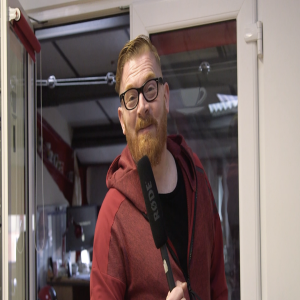
The Muiri Estate was founded in the late 1970s and is named after a local species of tree called pruners in the local Kikuyu language. Owned by the Mugiai family, Muiri is a rather big estate at 180 hectares with an on-site wet mill for processing, a dam and storehouse.
There are a whopping 156,000 trees producing coffee on the estate and they are predominantly a mix of SL28, SL34, K7 & Ruiru 11 - however, the estate is actively experimenting with other varietals and crops too, doing their best to be ready for the ever-changing climate and the challenges it brings with it.
The use of pesticides in Kenya is quite common but often a necessity to protect the trees from insect attacks, coffee diseases, funghi and the dry Kenyan climate. Over the last couple of years, Kenyan coffee production has been impacted by coffee berry disease (also known as CBD) and some really tough weather conditions.
Because of these things, we feel it's super important to be supporting an estate like Muiri as they're doing things differently to the rest (and we love different!). Production at the Muiri Estate is a lot more complex than many other farms in Kenya as they work completely organically, the Mugiai family are looking after their trees and estate incredibly carefully, for example manually pruning and stumping the trees regularly.
After the coffee is processed at the estate, it is separated by the size of the beans, AA, AB and PB. This is the biggest selection of the crop, which in Kenyan coffee grading is called AA.
This is zingy and sweet, a super clean and refreshing cup. Upfront I get white sugar with grapefruit and a little lime zest. There's a shoulder of gooseberry in there too, with a hit of blackcurrant really coming through on the finish and aftertaste.
- Country: Kenya
- Province: Central
- District: Thika
- Estate: Muiri Estate
- Altitude: 1,530 m.a.s.l.
- Producer: Mugiai Family
- Process: Fully washed
- Fermentation time: 48-72 hours
- Drying method: Raised beds
- Drying time: 15-21 days
- Varietals: SL28, SL34, K7 & Ruiru 11
- Grade: AA
- Certification: Organic
Clean cup: (1–8): 7
Sweetness: (1–8): 7
Acidity: (1–8): 7
Mouthfeel: (1–8): 6
Flavour: (1–8): 6.5
Aftertaste: (1–8): 6
Balance: (1–8): 6
Overall: (1–8): 6.5
Correction:(+36): +36
Total (max. 100): 88
Roast Information
Medium – keep it pretty quick - through first, let it develop a little and aim to drop the roast towards the end of the gap but before second crack kicks off.
Brewing Tip
We're noticing that this coffee can tend to extract very easily versus others we are currently roasting. We recommend either a coarser grind than normal, shorter overall brewing time or lowering the amount of coffee you normally use to make a brew - our standard recommendation is 60g/l but try 55g/l and see what you think.
More Episodes
 2015-05-17
2015-05-17
 2015-05-11
2015-05-11
 2015-05-02
2015-05-02
 2015-04-30
2015-04-30
 2015-04-30
2015-04-30
 2015-04-12
2015-04-12
 2015-04-05
2015-04-05
Create your
podcast in
minutes
- Full-featured podcast site
- Unlimited storage and bandwidth
- Comprehensive podcast stats
- Distribute to Apple Podcasts, Spotify, and more
- Make money with your podcast
It is Free
- Privacy Policy
- Cookie Policy
- Terms of Use
- Consent Preferences
- Copyright © 2015-2024 Podbean.com






